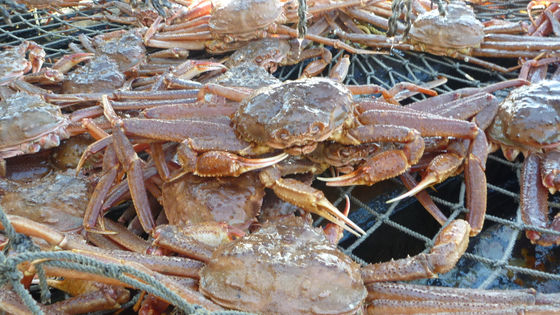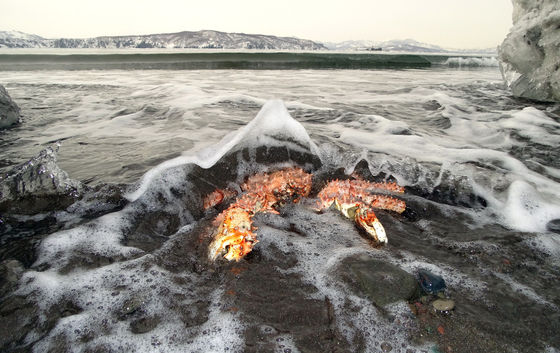Estimated 1 billion crabs disappear, Alaskan crab season canceled

Authorities have announced a ban on fishing due to the mysterious disappearance of snow crabs caught in Alaska in the United States. While the food service industry and others are being hit by this, experts are rushing to investigate the cause of the sudden decline in snow crabs and the impact on the ecosystem.
One billion snow crab missing – Season Canceled for Alaskan fleet
Alaska snow crab season canceled as officials investigate disappearance of an estimated 1 billion crabs - CBS News
https://www.cbsnews.com/news/fishing-alaska-snow-crab-season-canceled-investigation-climate-change/
The Alaska Department of Fisheries and Game (ADF&G) will not lift the ban on snow crab fishing in 2022-2023 because the snow crab population obtained from the analysis results of the trawl survey conducted in the Bering Sea is below the standard value. Officials estimate that an estimated 1 billion crabs have disappeared in the last two years, representing a 90% population decline.

by
In a statement ( PDF file) , ADF&G said, ``The authorities have evaluated and carefully considered all feedback from crab industry stakeholders before making this decision. Recognizing the significant impacts of crabs on fishers, industries and communities, these impacts must be balanced with the long-term conservation and sustainability demands of crab stocks. In light of this, the management of snow crab in the Bering Sea has no choice but to focus on conservation and regeneration, given the state of the stock,' he said, hinting at a difficult decision.
This is the first time snow crab has been banned in Alaska, and local fisheries officials are investigating the whereabouts of a large number of crabs that have mysteriously disappeared along with king crab, which has been banned for two consecutive years from 2021. is scratching my head.
Experts say disease and climate change are the main reasons. According to the National Oceanic and Atmospheric Administration, Alaska is the fastest warming region in the United States, losing hundreds of thousands of tons of ice annually. This is a fatal problem for crabs that prefer cold environments.
ADF&G research scientist Ben Daly said: ``In recent years, the Bering Sea has been experiencing warm conditions, and we are seeing reactions in species that are adapted to the cold environment. As such, it serves as a warning indicator that other cold-water-hungry species are in danger.'

The industry has raised concerns over the fact that crabs have decreased to 10% of what they used to be in just two years. Jamie Goen, executive director of Alaska Bering Sea Crabbers, an industry group of Alaskan crab fishers, said, 'For Alaska's iconic crab fishery, and for the hard-working fishermen and communities who rely on it, It's an unprecedented and troublesome time.With no effective conservation measures in place to restore crab stocks, second and third generation crab fishers will have no choice but to go out of business.'
Related Posts:
in Creature, Posted by log1l_ks







